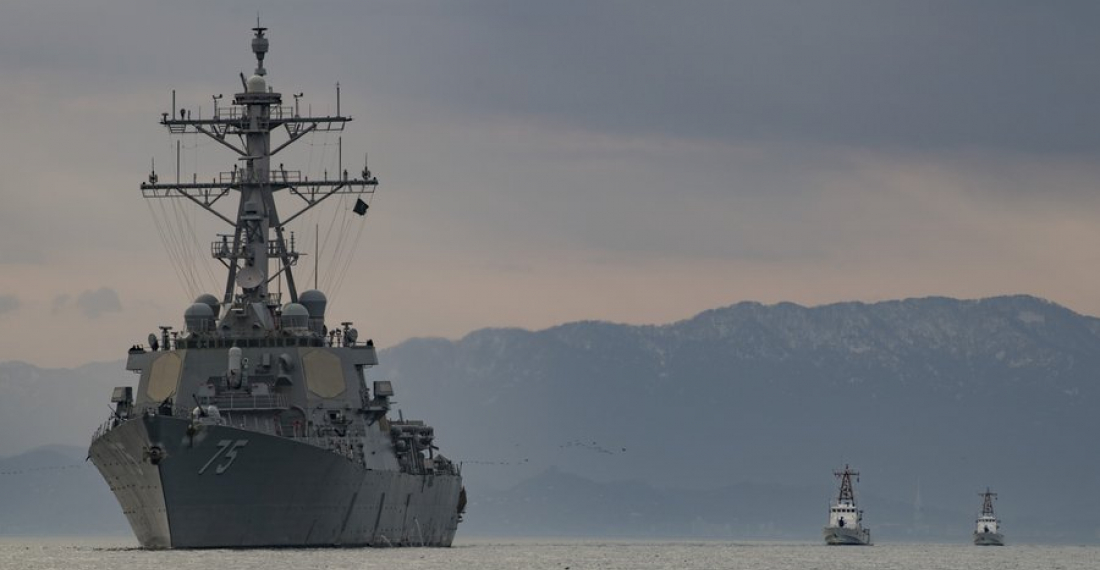The United States has deployed a guided-missile destroyer, the USS Donald Cook into the Black Sea in support of NATO Allies and partners. The ship passed through the Bosphorus on Monday on its way to the region.
This is the seventh time a U.S. Navy ship has visited the Black Sea since the beginning of 2020. A statement by the command of the US Sixth Fleet in Naples said that while in the Black Sea, the ship will conduct routine maritime security operations that support regional stability.
“Operating in the Black Sea signifies our commitment to partners and allies in the region,” said Cmdr. Kelley Jones, commanding officer of Donald Cook.
A statement posted on the website of UN Naval Command Europe and Africa said,
"the Black Sea is a critical waterway for maritime commerce and stability throughout Europe. The U.S. Navy routinely operates in the Black Sea to work with our NATO Allies and partners, including Bulgaria, Georgia, Romania, Turkey, and Ukraine. It is in the world’s best interest to maintain a stable, prosperous Black Sea region and deter aggressive actors who seek destabilization for their own gain.
Donald Cook recently began its 11th patrol of the U.S. Sixth Fleet area of responsibility in support of U.S. national security interests in Europe and Africa. The U.S. Navy routinely operates in the Black Sea consistent with international law, including the Montreux Convention.
The ship’s operations in the Black Sea strengthens interoperability among NATO allies and partners and demonstrate collective resolve to Black Sea security under Operation Atlantic Resolve.
In the meantime Moscow has reacted negatively to the arrival of the US ship and said its Black Sea Fleet was monitoring the ship's movements. TASS news agency said that "Russian Foreign Ministry repeatedly noted that the military presence of non-regional powers in the Black Sea does not contribute to strengthening of stability. The US insists that it acts within the Montreaux Convention, which regulates military use of the Bosporus and Dardanelles straits, adding that its military exercises take place in international waters."
source: commonspace.eu with US Naval Command Europe and Africa (Naples), TASS news agency (Moscow) and agencies
photo: Guided Missile Destroyer USS Dionald Cook (archive picture)






